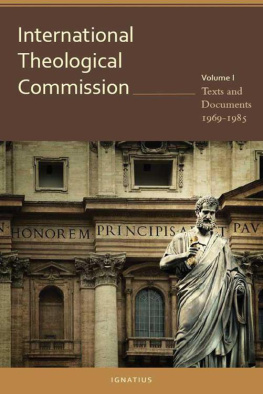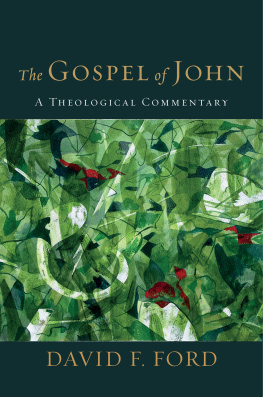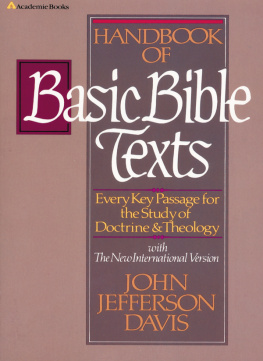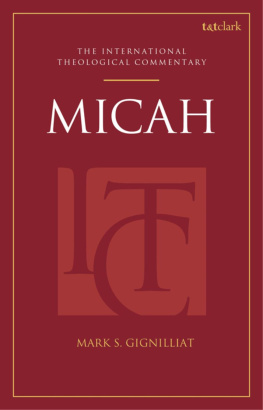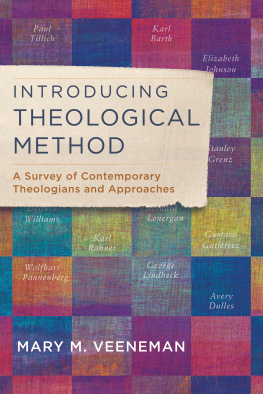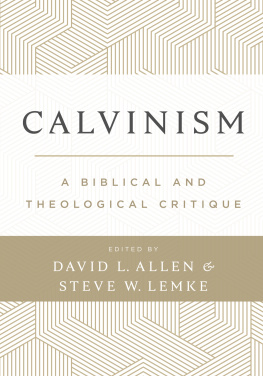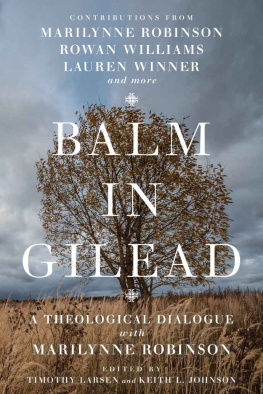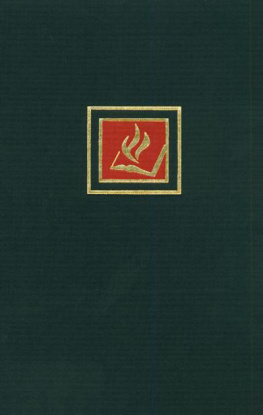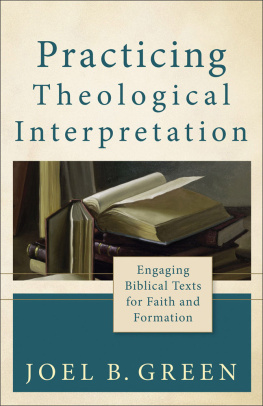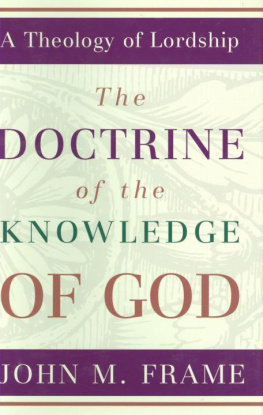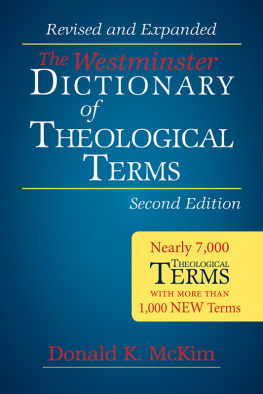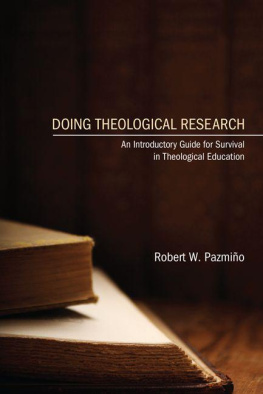INTERNATIONAL THEOLOGICAL COMMISSION
TEXTS AND DOCUMENTS, 1969-1985
INTERNATIONAL THEOLOGICAL COMMISSION
TEXTS AND DOCUMENTS
1969-1985
With a Foreword by Joseph Cardinal Ratzinger
Edited by Monsignor Michael Sharkey
IGNATIUS PRESS SAN FRANCISCO
Cover photograph by istockphoto/Roberto A. Sanchez
Cover design by Roxanne Mei Lum
1989 by Ignatius Press, San Francisco
Republished in 2009 by Ignatius Press
All rights reserved by the International Theological Commission
ISBN 978-0-89870-227-9
Library of Congress control number 88-83749
Printed in the United States of America
CONTENTS
FOREWORD
The idea of founding an international theological commission was suggested in various quarters at the first of the postconciliar Synods of Bishops, which met in 1967. Close cooperation between pastors and theologians had been one of the characteristic marks of the Second Vatican Council. The desire expressed at the Synod was to give that cooperation an institutional form, and thus some continuing existence even when the great moment of the Council itself had passed. Also uppermost in the minds of the bishops who proposed the commission was the thought that a rapprochement of scholarly reflection and pastoral responsibility was not the least urgent need of a period when intellectual problems were becoming ever more complex, and scholarship was leaving its impress on the lives of men in modern society, whether at a sophisticated or a simple level. Pope Paul VI at once took up the idea, so that as early as autumn 1969 the Commissions members were getting together for the first time. It consisted of thirty theologians, selected on the basis of advice from episcopal conferences in different parts of the world. In this way, the Commission would not just represent different theological disciplines, diverse language groups with their attendant cultural specificities and varying approaches to theological method. In addition, this procedure would also entail collaboration between the universal primate and the world episcopate as well as a commercium between pastors and teachers. For, although admittedly an individual theologian could only represent his own scholarly competence, yet he would be aware that he brought with him the confidence of his own bishop and that his labors were serving the bonds that should hold between bishops and theologians. The term of appointment was five years, after which time the Commission would be reconstituted by the same process. Thus it was hoped that a balance could be struck between continuity and renewal. The Commission is not an organ of the Curia but an autonomous body. However, it is linked with the Churchs organizational leadership in that the Prefect of the Congregation for the Doctrine of the Faith is its president.
Once a year, generally in autumn, the thirty professorial members assemble for a week-long session, prepared for during the year by correspondence or more limited workshops of small groups. By and large, the Commission chooses its own themes, but if the higher levels of the Churchs leadership wish to propose a topic for discussion, the Commission takes this into account as it plans its program. In this way, it has made a notable contribution to the various Synods of Bishops, as well as to such curial organisms as the Commission for Justice and Peace or the Pontifical Council for Culture. Out of some fifteen years of this common work an impressive number of documents has emerged, but until now these have only been accessible in widely scattered sources and so have lacked that appreciation of their cumulative value that they deserve. In these circumstances, it is hardly surprising that one constantly hears the criticism that the Commission is not active enough and has nothing to offer the wider life of the Church. However, anybody who has expectations that the Commission might represent a kind of permanent his Majestys opposition to the Churchs Magisterium, offering a running commentary of speculative objections against Rome for the benefit of the multitude, is going to be disappointed by a revelation of the serenity and objectivity of the Commissions labors. On the other hand, anybody who is looking for world-shaking scholarly discoveries has misunderstood the whole point and nature of a commission. Thirty very different voices have to be brought to speak in harmony: the scholarly pursuits of individuals are not the object of the exercise. The special contribution of the Commission is to gain a hearing for the common voice of theology amid all the diversities that exist. For notwithstanding the legitimate pluralism of theological cultures in the Church, the unity of theology must remain and empower theologians to offer some common account of their subject. In these pages, therefore, one will not find the exciting theses of innovative individuals. If there is excitement here, it lies in the discovery that even in our contemporary situation it is possible to say something together despite all our differences and so to take part together in a further exploration of the one Faith of the Church. All the texts that follow are the fruit of a long and often difficult dialogue. In that dialogue not only have various disciplines, methods, and ways of thought found a common path. Over and above that, the wider dialogue of theologians with the bishops, as well as between bishops and the Petrine office in the Church, has found a voice. It is precisely for this reason that the Theological Commission represents an authentic continuation of the great experience of the Council and a clarification of its true bearing.
On this account I wish to express my heartfelt thanks to the editor who has assembled the published texts of the Theological Commission from the last fifteen years and laid them before the English-speaking public. He has rendered accessible a portion of postconciliar theological history whose significance is as yet far from fully evaluated. I hope that this book will find a wide readership and so serve the creative development of theology in the original spirit of the Second Vatican Council.
Joseph Cardinal Ratzinger
Rome, 16 October 1985
PRELIMINARY NOTE
The present volume gathers all the documents published by the International Theological Commission during the first fifteen years of its existence (1969-1985).
As one will note, the breadth of thought of these documents varies greatly. One may say the same for their literary genre, which extends from relatively brief theses or propositions, some of which include introductions or comments, to more elaborate reports or declarations.
As regards their juridical statute, these documents obtain from the Commission, after two initial votes which permit the introduction of modifications, an approval that may assume two forms (cf. Definitive Statutes, article 12):
- The formal approval (in specific form), conceded by absolute majority on the part of the members of the Commission present at the plenary session, concerns the entire text, including the ideas, the wording, the presentation.
- The general approval (in generic form) implies only that the Commission accepts the principal ideas of the text; the rest remains the responsibility of its author or authors. In the present volume the type of approval that this document has obtained is clearly indicated. In the majority of cases, nevertheless, the approval is in specific form.
For the history of the institution and the works of the Commission, the interested reader will find important elements in the following publications of its General Secretary, Monsignor Philippe Delhaye: preface to the volume of M. Gilbert, J. LHour, and J. Scharbert, Morale et Ancien Testament , Lex spiritus vitae 1 (Louvain-la-Neuve, 1976), 1-7; Memoirs of the First Five Years of the International Theological Commission, LOsservatore Romano (1 July 1976), p. 1; Paul VI et la Commission Thologique Internationale, Revue thologique de Louvain 9 (1978): 417-23; presentation of the volume of the Commission: Problmes thologiques du mariage chrtien , Lex spiritus vitae 4 (Louvain-la-Neuve, 1979), 13-21; and Laprs Vatican II et la constitution de la Commission Thologique Internationale, Revue thologique de Louvain 16 (1985): 288-315. See also G. Caprile, Il Sinodo dei Vescovi (1967) (Rome: La civilt cattolica, 1968), Analytical Index under 2/2/B, 5, p. 665. A brief account of the annual activities of the Commission can be found in the volumes of the collections LAttivit della Santa Sede (Rome: Tipografia Poliglotta Vaticana) and Acta Apostolicae Sedis (Rome: Libreria Editrice Vaticana).
Next page
